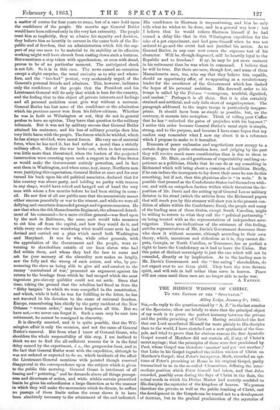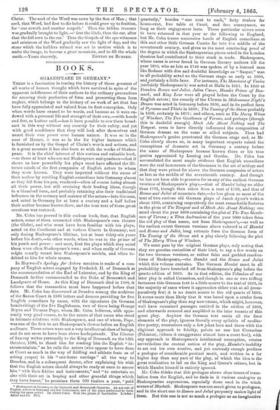THE HIDDEN WISDOM OF CHRIST. To THE EDITOR OF THE
" SPECTATOR."
Abbey Lodge, January 2i, 1865. SIR,—In reply to the question raised by " A. Z." in the last number of the Spectator, allow me briefly to state that the principal object of my work is to prove the perfect harmony between the private and the public preaching of Christ. Having established the fact that our Lord manifested Himself far more plainly to His disciples than to the world, I have sketched out a new synthesis of the Gos- pels, and tried to prove that for obvious reasons the first Apostolic Gospel record of Matthew did not contain all, if any, of Christ's secret sayings ; that the principles of these were first proclaimed by Paul, whose Gospel was therefore another' and yet not another;' that Luke in his Gospel ingraf tod the hidden wisdom of Christ on Matthew's Gospel; that Peter's interpreter, Mark, recorded an epi- tome of Peter's preaching at Rome in his original Gospel, partly transmitted to us in the so-called Clementines, defining the inter- mediate position which Peter himself had taken, and that John recorded, possibly even during the days of Christ in the flesh, the actual words in which his Divine Master had secretly confided to His disciples the mysteries of the kingdom of heaven. We possess therefore the private as well as the public teaching of Christ, and the development in the Gospels can be traced not to a development of doctrine, but to the gradual proclamation of the mysteries of Christ. The seed of the Word was sown by the Son of Man ; that seed, that Word, had first to die before it could grow up to fruition, for one soweth and another reapeth."Then the hidden treasure was gradually brought to light,—' first the blade, then the ear, after that the full corn in the ear.' Thus the Gospels of the eye-witnesses and ministers of the Word gradually saw the light of days and the stone which the builders refused was set in motion which is to smite the image, to become a great mountain, and to fill the whole































 Previous page
Previous page